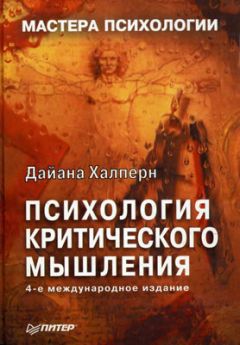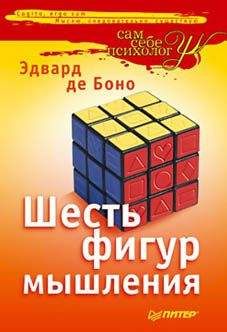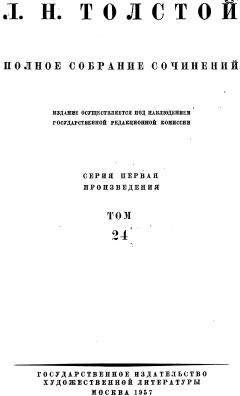Sternberg R. J., Frensch P. A. (Eds.). (1991). Complex problem solving: Principles and mechanisms. Hills-dale, NJ: Lawrence Erlbaum Associates.
Sternberg R. J., Lubart T. (1995). Defying the crowd: Cultivating creativity in a culture of conformity. New York: The Free Press.
Sternberg R. J., Smith E. E. (1988). (Eds.). The psychology of human thought. New York: Cambridge University Press.
Sternberg R. /., Wagner R. K. (Eds.). (1986). Practical intelligence: Nature and origins of competence in the everyday world. New York: Cambridge University Press.
Sternberg R.J., WellE.M. (1980). An aptitude-strategy interaction in linear syllogistic reasoning. Journal of Educational Psychology, 72, 226–234.
Stewart J. K. (1985). From the director. National Institute of Justice: Research in brief. Washington, DC: U.S. Department of Justice.
Stroup D. J., Alien R. D. (Eds.). (1992). Critical thinking: A collection of readings. Dubuque, IA: Brown.
Summers G. J. (1968). New puzzles in logical deduction. New York: Dover.
Summers C. J. (1972). Test your logic: 50 puzzles in deductive reasoning. New York: Dover
Swartz R J., Parks S. (1994). Infusing the teaching of critical and creative thinking into elementary instruction. Pacific Grove, CA: Critical Thinking Press.
Taplin J. ?., Staudenmayer H. (1973). Interpretation of abstract conditional sentences in deductive reasoning. Journal of Verbal Learning and Verbal Behavior, 12,530–542.
Tardif T. Z., Sternberg R. J. (1988). What do we know about creativity? In R. J. Sternberg (Ed.), The nature of creativity: Contemporary psychological perspectives (pp 429–440). New York: Cambridge University Press.
TegerA. I. (1979). Too much invested to quit: The psychology of escalation of conflict. New York: Perga-mon.
Tetlock P. E. (1994). The psychology of futurology and the future of psychology. Psychological Science, 5, 1–4.
Thomas S. N. (1986). Practical reasoning in natural language (3rd ed.). Englewood Cliffs, NJ: Prentice-Hall.
Thouless R. H. (1932). Straight and crooked thinking. New York: Simon Schuster.
Thouless R. H. (1939). Tests of logical reasoning: How to think straight. New York: Simon Schuster.
Tinzman M., Jones B. F., Pierce /. (1992). Changing societal needs: Changing how we think about curriculum and instruction. In C. Collins and J. N. Mangeri (Eds.), Teaching thinking: An agenda for the 21st century (pp. 185–220). Hillsdale, NJ: Lawrence Erlbaum Associates.
Toulmin S., Rieke R., JanikA. (1979). An introduction to reasoning. New York Macmillan.
Tulving E. (1972): Episodic and semantic memory. In E. Tulving W. Donaldson (Eds.), Organization of memory. NY: Academic Press.
Tuma D. J., Reif F. (Eds.). (1980). Problem solving and education: Issues in teaching and research. Hills-dale, NJ: Lawrence Erlbaum Associates.
Turing A. (1950). Computing machinery and intelligence. Mind, 59, 433–460.
Tutu D. (1986). How to eat an elephant. In B. Lown E. Chazov (Eds.), Peace: A dream unfolding (p. 216). Ontario: Somerville House Books Ltd.
Tversky A. (1972). Elimination by aspects. A theory of choice. Psychological Review, 79, 281–299.
Tversky A., Kahneman D. (1971). Belief in the law of small numbers. Psychological Bulletin, 76, 104–110.
Tversky A., Kahneman D. (1974). Judgment under uncertainty: Heuristics and biases. Science, 185, 1124–1131.
TV linked to memory, radio to imagination. (1988, July 25). The Los Angeles Times, Part II, p. 3
Tversky A., Kahneman D. (1981). The framing of decisions and the psychology of choice. Science, 211, 453^58.
Tversky A., Kahneman D. (1983). Extensional versus intuitive reasoning: The conjunction fallacy in probability judgment. Psychological Review, 90, 293–315.
Vancouver Community Business Directory. (1987). Pink Pages. Advertising, Ltd.
Van Haneghan J., Barron L., YoungM., Williams S., Vye N… Bransford J. (1992). The Jasper series: An experiment with new ways to enhance mathematical thinking. In D. F. Halpern (Ed.), Enhancing thinking skills in the sciences and mathematics (pp. 15–38). Hillsdale, NJ: Lawrence Erlbaum Associates.
VanLehnK. (1989). Problem solving and cognitive skill acquisition. In M. Posner (Ed.), The foundations of cognitive science (pp. 527–580). Cambridge, MA: MIT Press.
Vaughan J. L. (1984). Concept structuring: The technique and empirical evidence. In С D. Holley D. F. Dansereau (Eds.), Spatial learning strategies: Techniques, applications, and related issues (pp. 127–147). New York: Academic Press.
Vernon P. (1970). Creativity: Selected readings. Har-mondsworth, England: Penguin.
von Oech, R. (1983). A whack on the side of the head. New York: Warner Books.
VosniadouS., OrotonyA. (Eds.). (1989). Similarity and analogical reasoning. Cambridge, England: Cambridge University Press.
Walberg F. (1980). Puzzle thinking. Philadelphia: Franklin Institute Press.
Wales С. Е., NardiA. (1984). Successful Decision-Making Morgantown, WV: Center for Guided Design.
Wallas G. (1926). The art of thought. New York: Har-court Brace.
Walsh J. (1981). A plenipotentiary for human intelligence. Science, 214, 640–641.
Wandersman A. H., Mailman W. K. (1993). Are people acting irrationally? Understanding public concerns about environmental threats. American Psychologist, 48, 681–686.
Wang P. (1994, October). How to retire with twice as much money. Money, pp. 77–84.
Wanous J. P. (1973). Effects of a realistic job preview on job acceptance, job attitudes, and job survival. Journal of Applied Psychology, 58, 327–332. '
Wason Р.СЛ1960). On the failure to eliminate hypotheses in a conceptual task. Quarterly Journal of Experimental Psychology, 12, 129–140,
Wason P. С (1968). On the failure to eliminate hypotheses: A second look. In P. C. Wason P. N.
Johnson-Laird (Eds.), Thinking and reasoning. Baltimore: Penguin.
Wason P. C. (1969). Structure simplicity and psychological complexity. Bulletin of the British Psychological Society, 22, 281–284.
Wason F. C, Johnson-Laird P. N. (Eds.). (1968). Thinking and reasoning. Harmondsworth, England: Penguin.
Wason R. C, Johnson-Laird P. N. (1972). Psychology of reasoning. Cambridge, MA: Harvard University Press.
Weber R. J., Perkins D. N. (Eds.). (1992). Inventive minds: Creativity in technology. New York: Oxford University Press.
Weisberg R. W. (1988). Problem solving and creativity. In R. J. Sternberg (Ed,), The nature of creativity: Contemporary psychological perspectives (pp. 148–177). New York. Cambridge University Press.
Weisberg R. W. (1993). Creativity: Beyond the myth of genius. New York: Freeman.
Weisberg R., DiCamillo M., Phillips D. (1978). Transferring old associations to new situations: A nonau-tomatic process, Journal of Verbal Learning and Verbal Behavior, 17, 219–228.
WertheimerM. (1959). Productive thinking (2nd Ed.). New York: Harper.
Wheeler D. D., Janis I. L. (1980). A practical guide for making decisions. New York: The Free Press.
Wheeler D. L. (1994, March 16). Chronicle of Higher Education, pp. A41-A43.
Whimbey A. (1976). Intelligence can be taught. New York Bantam.
WhimbeyA., LochheadJ. (1982). Problem solving and comprehension: A short course in analytic reasoning. Philadelphia: Franklin Institute Press.
Whitehead A. N., Russell B. (1927). Principa mathematics (2nd. ed.). New York: Cambridge University Press.
Whiting С S. (1958). Creative thinking. New York: Reinhold.
WhorfB. (1956). Language, thought, and reality. Cambridge, MA: MIT Press.
Wickelgren W. (1974). How to solve problems. San Francisco: Freeman.
Wicker A. W. (1981). Getting out of our conceptual ruts: Strategies for generating new perspectives on familiar research problems. Paper presented at the 1981 annual convention of the Western Psychological Association, Los Angeles.
Wilson T. D., Crouch E. A. C. (1987). Risk assessment and comparisons: An introduction. Science, 286, 267–270.
Wilson T. D., Nisbett R. E. (1978). The accuracy of verbal reports about the effects of stimuli on evaluations and behavior. Social Psychology, 41, 118–131.
Wright G., Bolger F. (1992). Expertise and decision support. New York: Plenum.
Nates J. F. (1990) Judgment and decision making. Englewood Cliffs, NJ: Prentice-Hall.
Zimbardo P. G., Leippe M. R. (1991). The psychology of attitude change and social influence. New York: McGraw-Hill.
Halpern D. Enhancing Thinking Skills in the Science and Mathematics. Preface. 1992.
Вертгеймер М. Продуктивное мышление. — М.: Прогресс, 1987. — С. 108–109.
Зинченко В. П. Аффект и интеллект в образовании. — М.: Тривола, 1995. — С. 21–23.
Чалдини Р. Психология влияния. — СПб.: Изд-во "Питер", 1999, 2000





